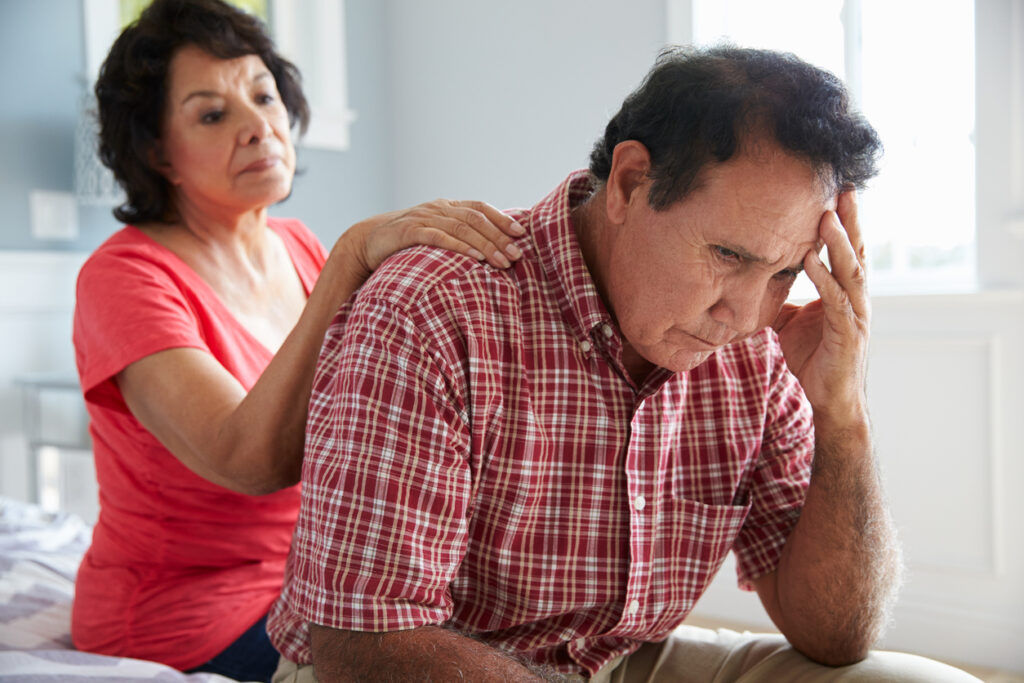Since the start of the COVID-19 pandemic, elder abuse rates have steadily increased, reports the World Health Organization (WHO), suggesting the issue is worsening, not improving. WHO says that within the past year, one in six people aged 60 and older experienced some form of elder abuse and two in three staff members reported that they committed abuse.”
While it’s clear the COVID-19 virus has presented us with many challenges, some of which we were not equipped to handle, elder abuse is preventable. Elder abuse can be an isolated incident or a repeated act and can be inflicted by nursing home staffers, residents, or even health care professionals. Nursing home neglect, which is also a form of abuse, happens when there is “a lack of appropriate action.”
Although elder abuse can happen in any community setting, rates are often highest in nursing homes and long-term care facilities, according to WHO.
What factors put a nursing resident more at risk of being abused?
Anyone living in a nursing home is at risk of being abused and neglected. However, certain factors put residents at a higher risk of being targeted. These include:
- Functional dependence/disability
A large percentage of the individuals residing in nursing homes are physically dependent on staffers. This means they need help getting in and out of bed and even need assistance with bathing and using the restroom. These individuals are often considered “needy” and are easily neglected if a staffer cannot devote the necessary time they need. Staffers who are overburdened or burnt out might also become more frustrated with these individuals and inflict harm when they begin to feel overwhelmed.
- Poor physical health
Residents who are in poor physical health require a significant amount of attention, that of which a staffer might not have to give. The truth is, many nursing homes are understaffed, meaning there aren’t enough workers to supervise and care for the residents being housed in the facility. This often results in workers being assigned to care for more residents than they can handle.
- Cognitive impairment
A cognitive impairment can stem from old age or a health issue such as dementia. When a resident is diagnosed with some form of dementia such as Alzheimer’s, their memory suffers, and they are less likely to remember an incident should one occur.
- Poor mental health
According to WHO, “approximately 15 percent of adults aged 60 and over suffer from a mental disorder.” Mental health issues can stem from a number of different things including the environment a person is subjected to live in, medications, or their lack of mobility. When a person transitions from being independent to dependent, it can take a toll on their physical and mental health.
Similar to the other factors mentioned above, caring for a nursing home resident who suffers from a mental health disorder can be challenging and some workers are simply not cut out for it.
- Low income
Although nursing home abuse can happen in a privately-run facility or one that operates with government funding, it tends to happen in homes that cater to low-income individuals. Homes that are faced with financial strain often cut their staff and make other sacrifices that put a resident’s health and wellbeing at risk.
How can I protect my loved one from nursing home abuse during the COVID-19 pandemic?
Though we are hopeful that the COVID-19 pandemic will soon be brought to an end, it is still a global concern. Homes have put into place certain precautionary measures to protect residents, though not all follow them. To help reduce the chances of your loved one becoming a victim of abuse or neglect, we recommend that you do the following:
- Visit your loved one often. This allows you to assess their physical and mental condition and also provides you with the opportunity to evaluate the environment they are living in. If you cannot visit your loved one in person, it is recommended you visit with them virtually through FaceTime, Zoom, or another app that supports face-to-face calling.
- Keep an eye out for signs of abuse and neglect. While visiting your loved one, be sure to keep an eye out for any physical and emotional signs that might signal abuse. If something seems off, don’t hesitate to bring it to a nurse’s attention.
- Become more informed on the facility’s COVID-19 protocol. Knowing what a nursing home’s COVID-19 protocol looks like can help you identify when something isn’t being done properly.
Contact a Chicago, IL nursing home lawyer if you suspect your loved one is being abused or neglected
If you believe your loved one has been abused or neglected by a nursing home staffer, our Chicago nursing home abuse lawyers are here to help. We would be happy to sit down with you to help you make sense of the matter and understand your legal rights. To schedule an initial consultation with a nursing home abuse lawyer now, call us at 1-312-384-1920.
You can contact Dinizulu Law Group, Ltd. at:
221 North La Salle Drive, Suite 1100
Chicago, IL 60601
Phone: 1-312-384-1920
Website: www.dinizululawgroup.com



